Home>Youth & Leaders Summit 2024: Our Students Will Shape the Future
15.02.2024
Youth & Leaders Summit 2024: Our Students Will Shape the Future
In times of conflict and turmoil, young people become a mobilising force for peace. With this in mind, and with the core theme of “The Next Generation: Shaping the Future”, the Paris School of International Affairs (PSIA) hosted the 9th edition of its Youth & Leaders Summit (YLS). On Friday 26 January 2024, Sciences Po was thus crowded by students, political experts and business representatives, all sharing the same motivation: understanding how the next generation can be the driving force for solutions to global challenges.
Guests from all continents with a wide range of backgrounds took the stage in front of an equally diverse audience. The whole summit, merging panels and individual breakout sessions, was traversed by a common leitmotif: keep fighting together for what you believe in. And if the panellists’ testimonies were not enough, the pin worn by the Dean joined the appeal: “Neither an optimist nor a pessimist, be an activist”.
Rediscover this inspiring event through a photo report, a recap article written by PSIA students Juliette Fekkar (Joint Master in Journalism and International Affairs), Cristina Scutariu (Master in International Governance and Diplomacy) and Giulia Trombelli (Master in International Security) as well as a video playlist of all sessions.
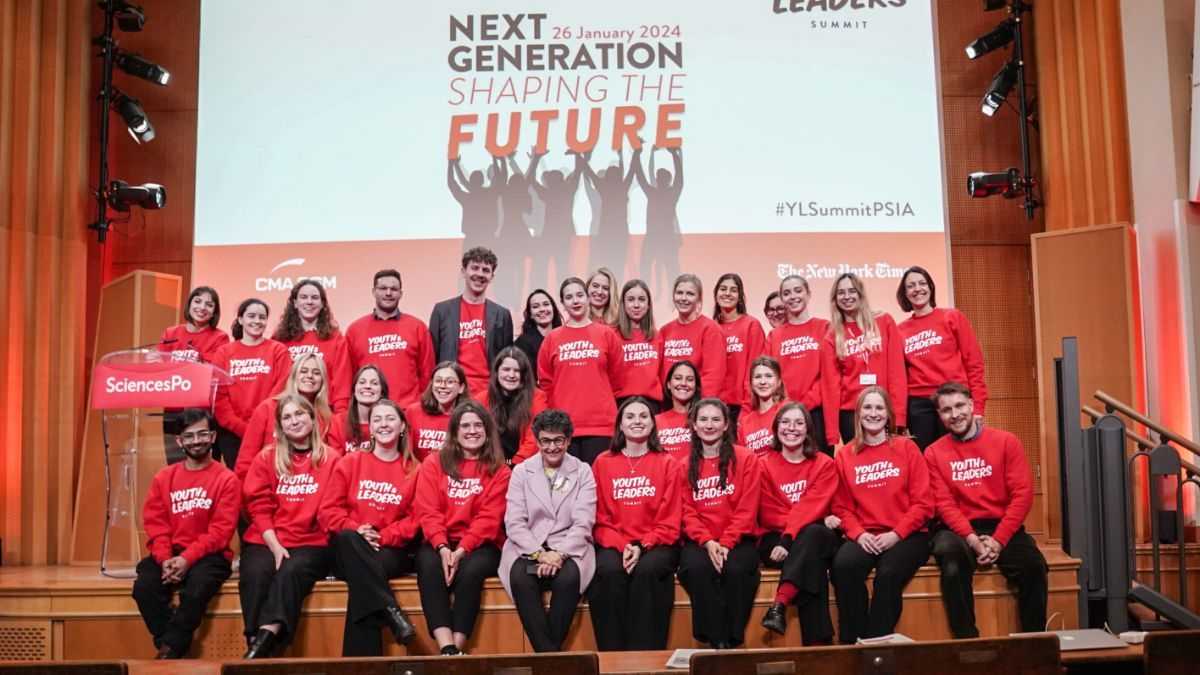
PSIA students with Dean Arancha González
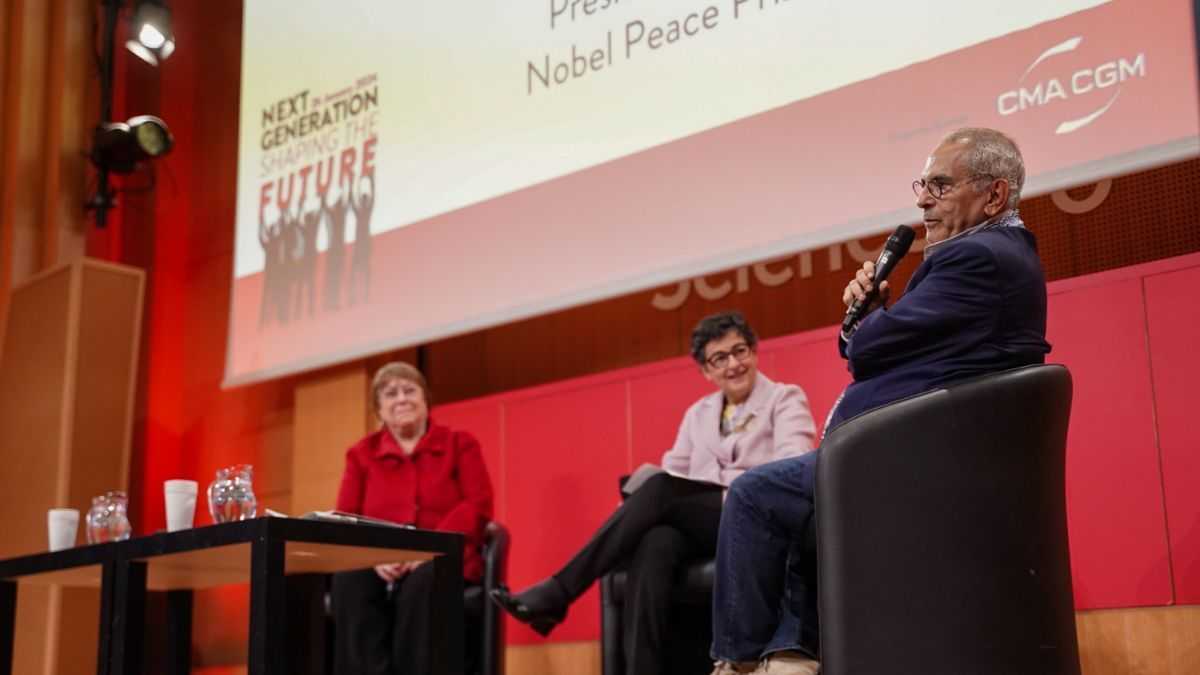
Keynote dialogue with Michelle Bachelet and José Ramos-Horta
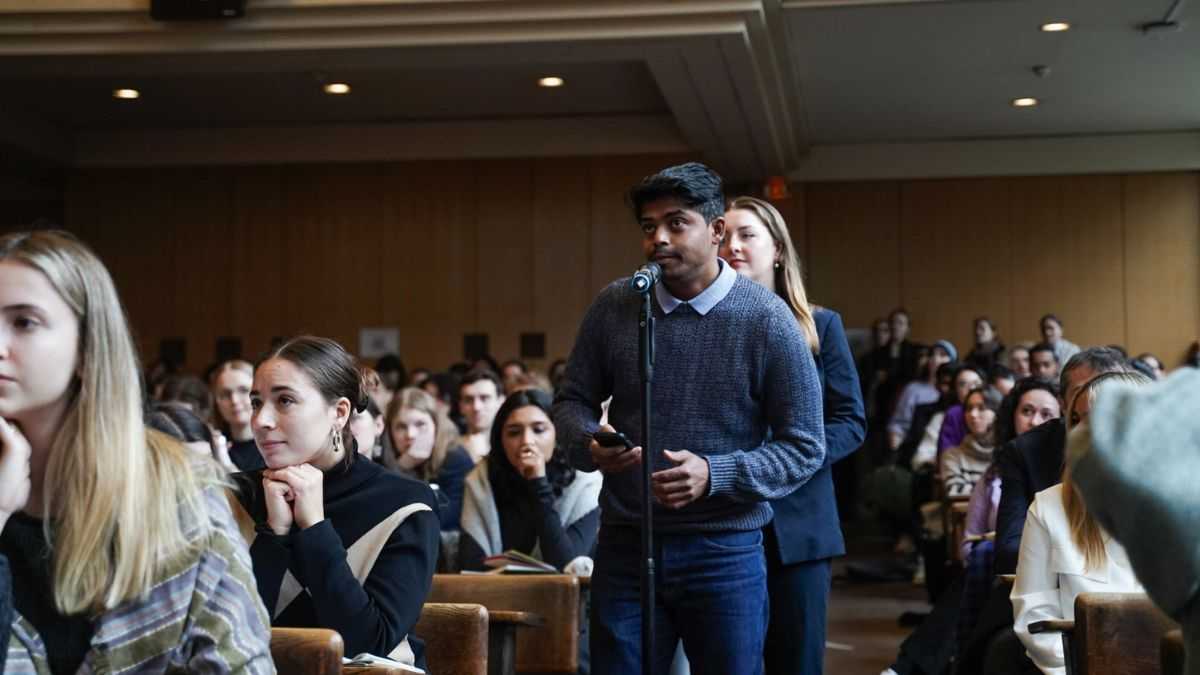
PSIA student from the audience asking a question
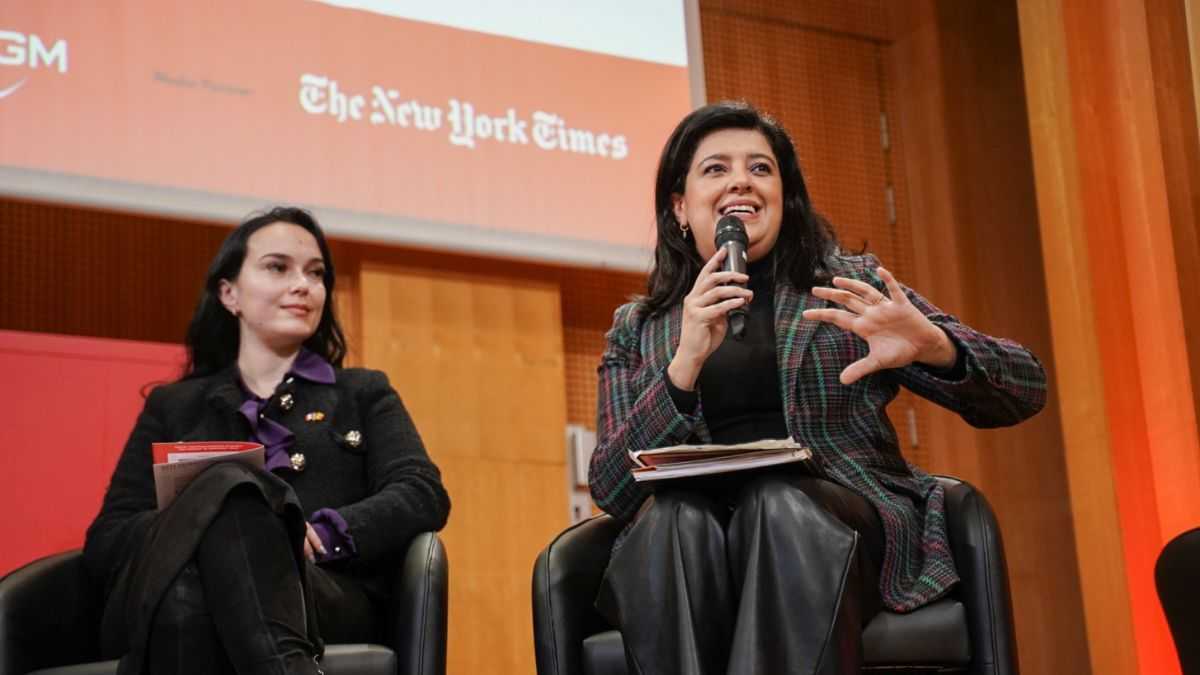
Panel 1 "Enabling next generation political participation" with Antonia-Laura Pup and Pilar Garrido
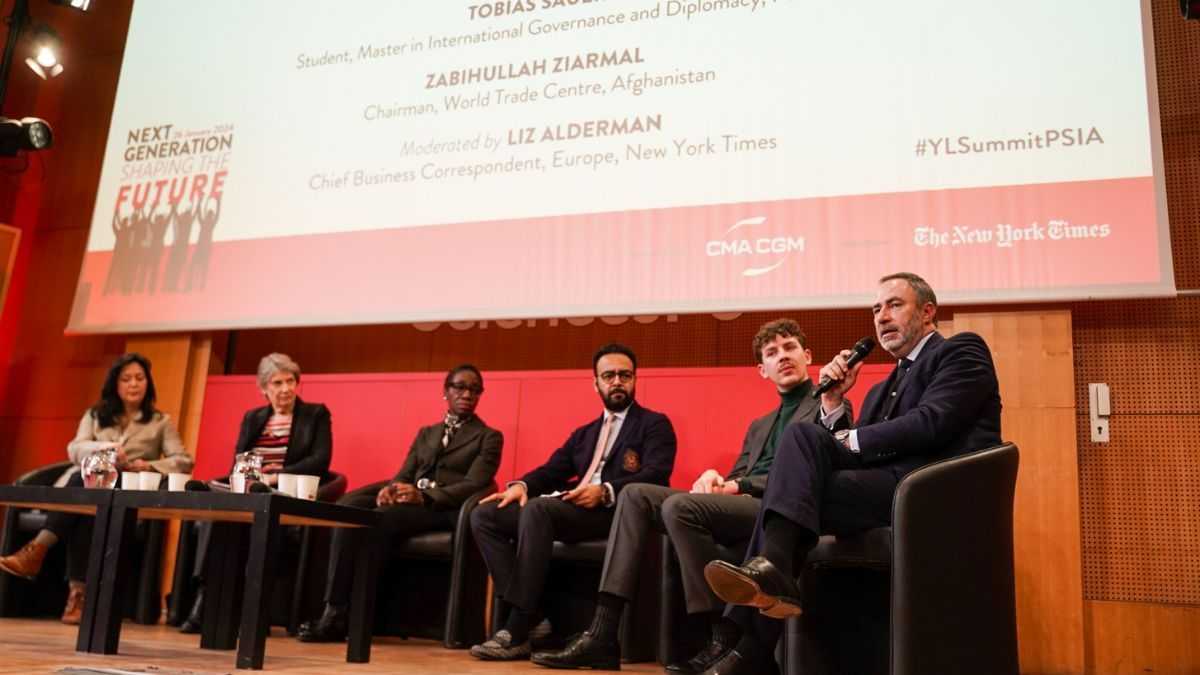
Panel 2 "Helping to shape peace" with Patrice Bergamini, Helen Clark, Comfort Ero, Tobias Sauer and Zabihullah Ziarmal
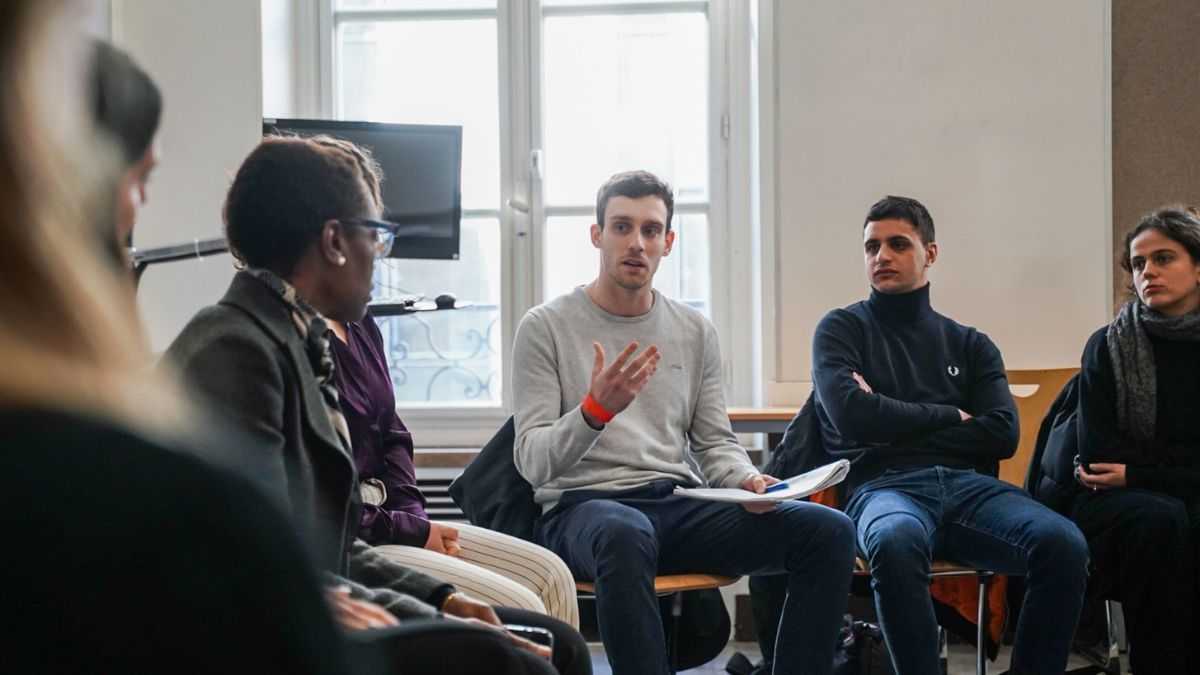
One of the breakout sessions led by PSIA student chairs
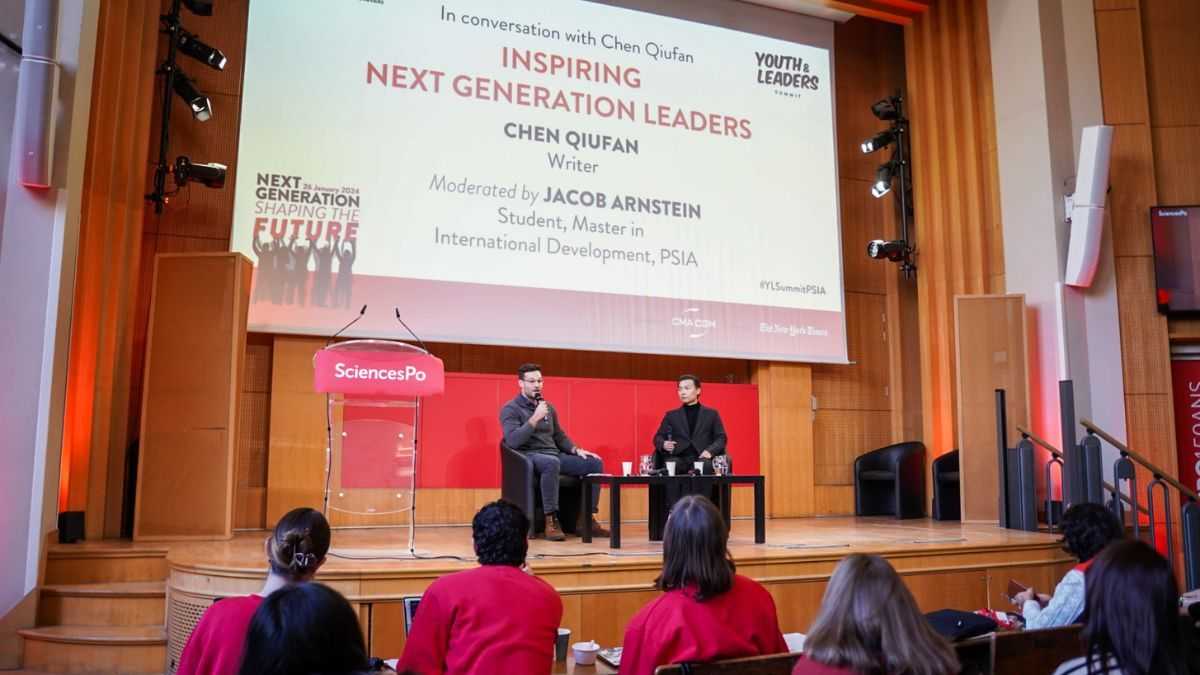
Master's student Jacob Arnstein and SF Writer Chen Qiufan
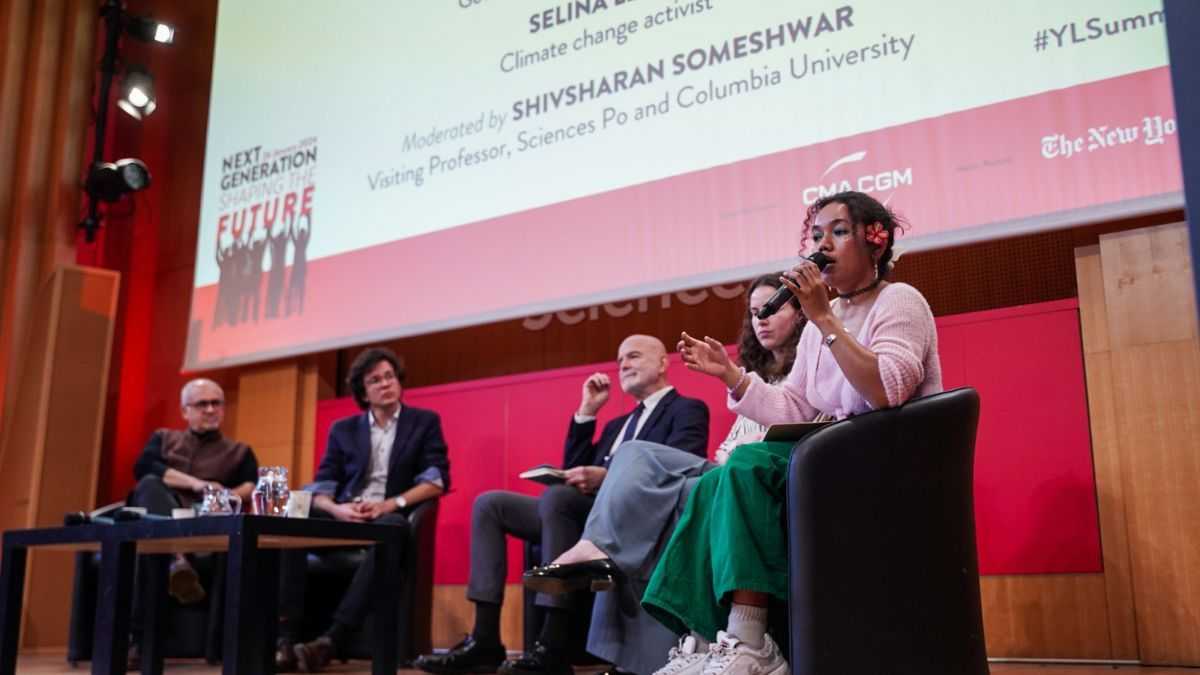
Panel 3 "Defending Environmental Defenders" with Felix Finkbeiner, Michel Forst, Eleaonor George and Selina Leem
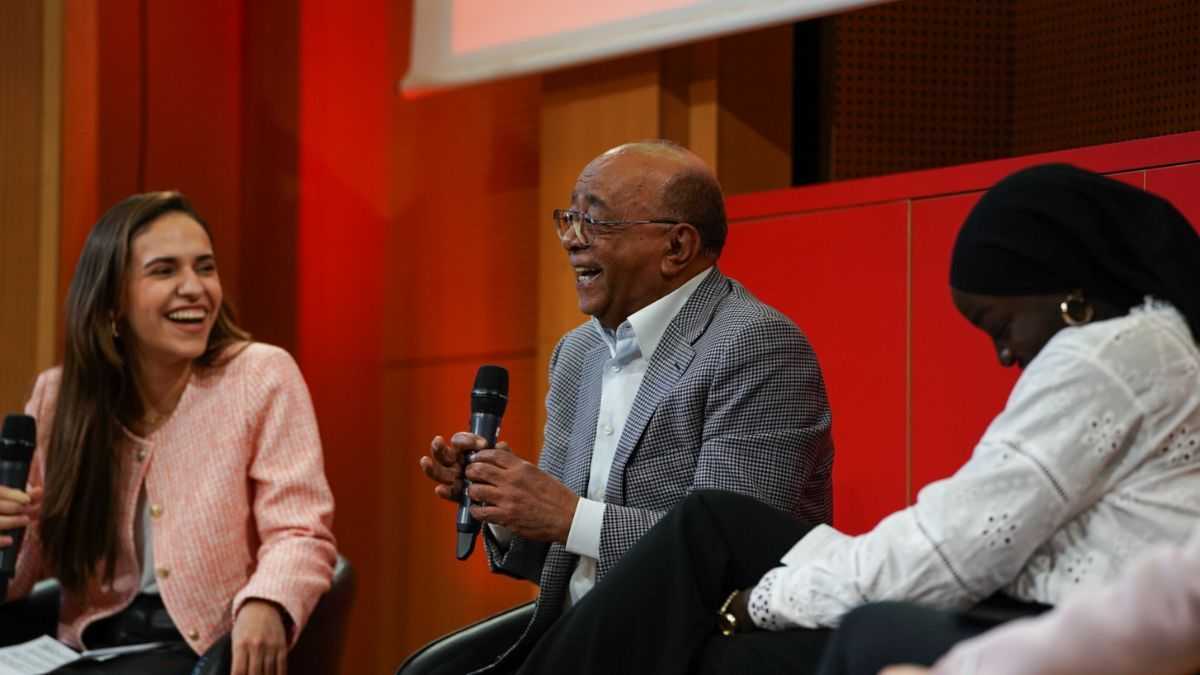
Conversation about "Business and governance" with Mo Ibrahim and PSIA students María Bermudez and Fary Gueye
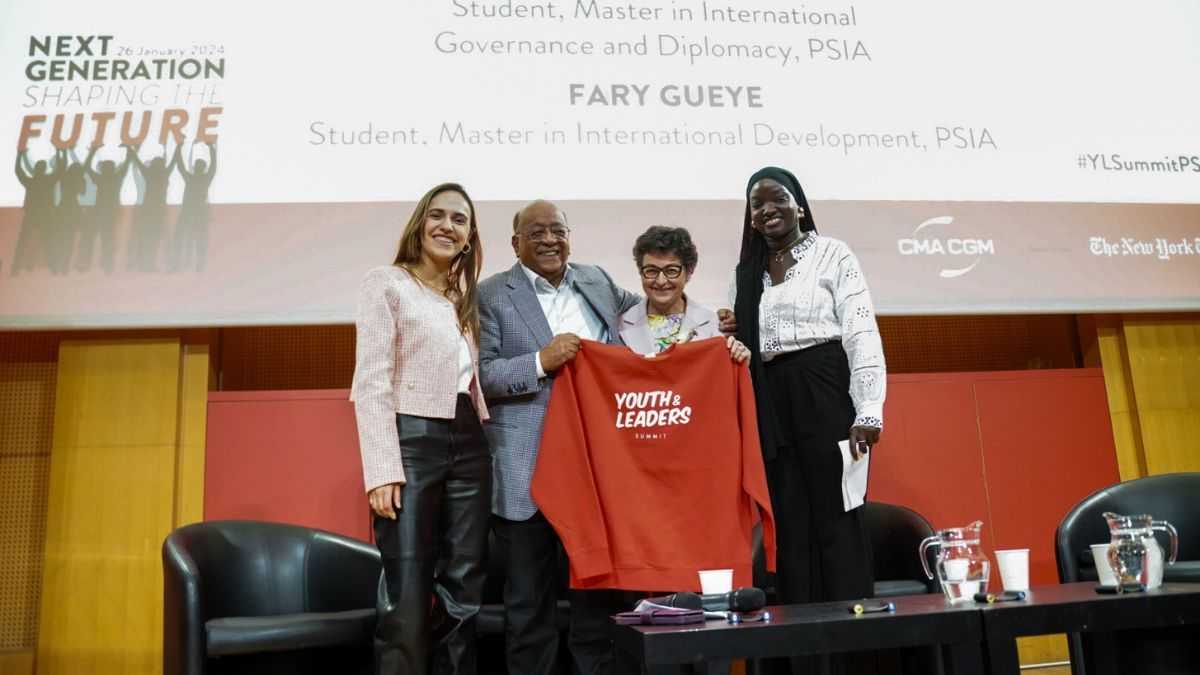
Mo Ibrahim and Dean Arancha González with PSIA students María Bermudez and Fary Gueye
A world in need of leadership
As we face a world “without a global anchor” said Dean Arancha Gonzalez in which crises multiply and overlap, what the international community needs is leadership. But not any kind of leadership: it should be passionate, empathetic, and creative young leaders and driven by the inspiration to operate real change. That is exactly what Sciences Po witnessed on Friday in a crowded Boutmy amphitheatre, where students’ speeches and questions enriched the debates with pointed and thoughtful insights. Not only did they demonstrate their determination to have a say on their future, but they also proved that “we are ready to be a part of this, to start changes in the world” in the words of a Sciences Po student from the audience.
Youth solidarity in the face of change
It is time to face the fact: the international system needs to be reformed. From the respect for human rights, to the reform of financing and the UN Security Council, something has to be done. The two first outstanding guests of the summit, former Chile’s president Michelle Bachelet and Timor-Leste’s president José Ramos-Horta have been very clear about it: the only way to cope with injustice and inequalities is a rule-based world in which the actors of the international community work collectively and in solidarity with one another.
When confronted with global and borderless crises such as climate change, “let’s stop finger pointing” encouraged José Ramos-Horta. Instead, we must choose our battles and push our values forward. In this context, youth engagement is more essential than ever: young people have to raise their voices and “we need to help up, support, and mentor them to fight for their rights” urged Michelle Bachelet. It is true, young generations do hold the future in their hands, but tomorrow depends especially on those who truly believe in and care about others.
Youth political participation: challenges and solutions
In contexts such as those, warranting new solutions to old problems, the world requires the implication of all members of society. The first discussion of the day thus reunited an all-women panel, with experiences in the politics of Europe, Africa and Latin America, to discuss the collective challenges faced in political participation. Biases against women, financial restraints, or the credibility of old political structures, were all cited as limitations faced by the next generation.
Nevertheless, the emergence of a supporting community was described as an empowering factor driving youth engagement, especially of women. “There was a network to learn from each other”, commented Luisa Porritt when describing her experience in the European Parliament. The other members of the panel, Pilar Garrido, Benedicta Lasi and student speaker Antonia Pup, echoed the feeling, and stressed the importance of engaging with local communities and political entities.
Shaping peace through justice and international trade
The current reality, where human rights and security institutions are called into question, is rather uncertain: nothing can be taken for granted in such a world. According to Helen Clark, former Prime Minister of New Zealand, it is necessary to bring people together and address the roots of poverty and inequalities. Also, Comfort Ero, President and CEO of the International Crisis Group, stressed that it is impossible to operate change without listening to people and having “a full range of voices”.
Indeed, as student speaker Tobias Sauer emphasised, it is key to create more space for them to politically engage those voices. Nonetheless, other perspectives must also be considered when reflecting on peace and conflict prevention. To name some, international trade and peace education of young generations were pointed out by Zabihullah Ziarmal, Chairman of the World Trade Center Afghanistan, and Patrice Bergamini, Vice-president of CMA CGM.
The power of imagination
Turning to situations where the wrong decisions change the face of the world, the engagement of the next generation was highlighted as stringent, through the power of imagination and writing. With challenges such as technological revolutions, current patterns in leadership could be failing to provide solutions. In response to such contexts, according to the words of writer Chen Qiufan, the power of Science Fiction lies in its ability to describe “patterns in the past” and help people understand more profound callings they’re willing to devote themselves to. Such aspects were thus discussed as key to developing the future generation of leaders, who can objectively but creatively approach impending societal challenges like climate change.
Protecting Environmental Defenders
Indeed, in regard to the climate crisis, "everywhere in Europe, activists are facing the same patterns of oppression" explained Michel Forst, the United Nations’ first Special Rapporteur on Environmental Defenders. He presented the recent measures put in place to fight campaigns of vilification and legal repression that many environmental defenders face.
Climate activist Selina Leem recounted that she started at the young age of fifteen years old, wanting to “break down the barriers” and make it easier for young people to act. “If you don’t speak up, how will they know?”, she questioned the audience. This is what student speaker Eleanor George did by calling for protection of scientists working on environmental solutions. Felix Flinkbeiner, founder of Plant-for-the-Planet, underlined how essential it is to empower young people to act.
Good governance as a tool to foster change
When discussing the power of new generations to shape the future, good governance practices appear as an essential tool to foster change. As such, Sudanese-British businessman and philanthropist Mo Ibrahim addressed the crucial link between youth engagement and a democratic revival on the African continent. From issues of large-scale corruption to the overwhelming influence of business in politics, he considers African politics in dire need of change, and believes the new generations should be the ones to lead that continent-wide shift.
Through the concept of “ubuntu”, which translates into the essential interconnectedness of people, communities were once again placed as a cornerstone when discussing governance challenges for African countries.
Forward to the Future
What lessons can we thus learn? With the 9th edition of the YLS coming to an end, the richness of the debate can inspire future leaders - whether it is in empowering women in politics or paving the way for positive change on the African continent. Echoing the purpose of the panels, the next generation, embodied by Sciences Po students, was ready to engage in discussion.
“I was very impressed by the student speakers, I almost forgot they were students,” said an attendee. After all, young people’s voices, like those heard in Boutmy amphitheatre, were the ultimate evidence of a catalyst to creative solutions battling challenges. Looking to the future, there are more debates waiting to be held, indicated Dean Arancha Gonzalez: “the next, tenth edition will be special: we have 365 days to ensure just that”.